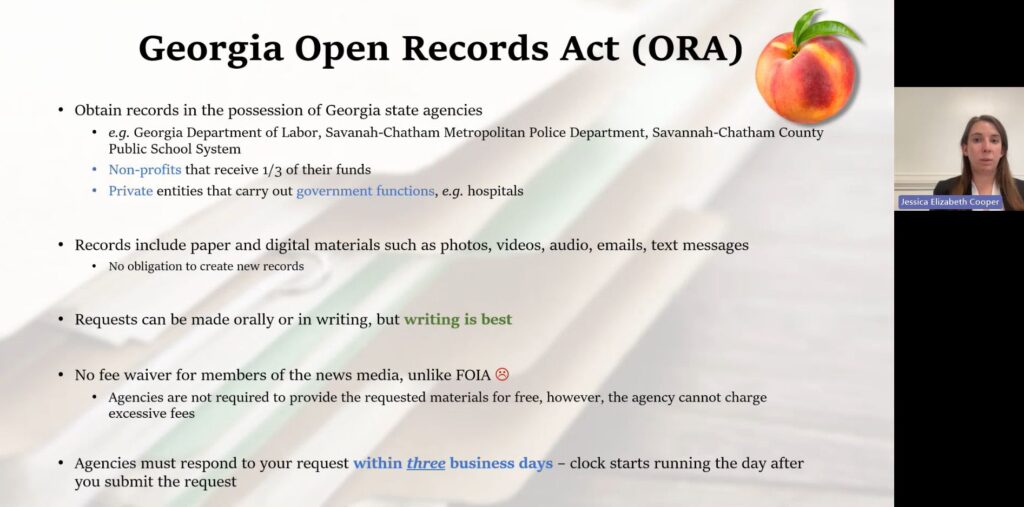
During the Fall 2023 semester, the University of Georgia School of Law’s First Amendment Clinic trained students, journalists, local officials, law enforcement, and engaged citizens on a variety of speech and media law topics.
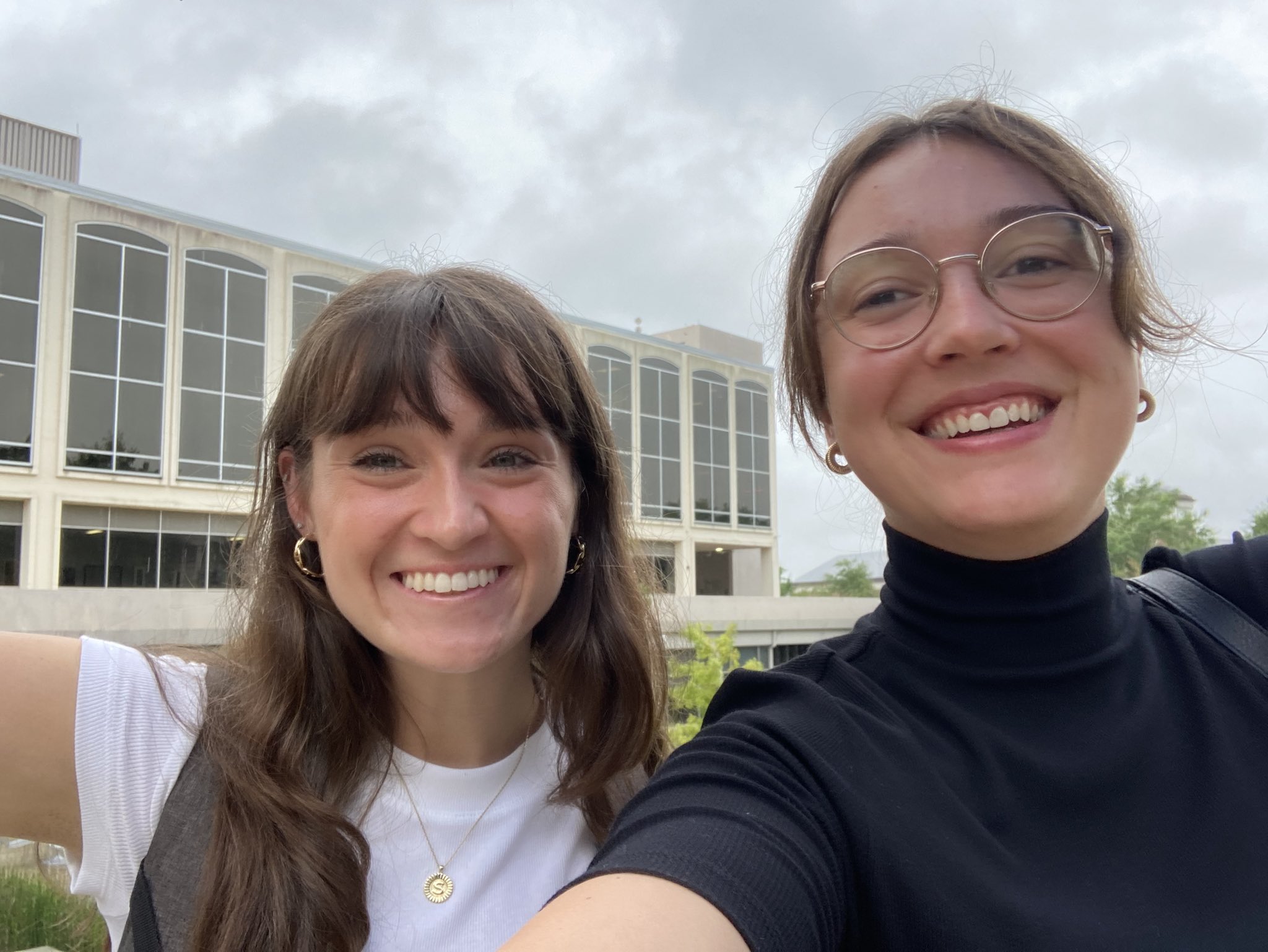
Media Law Trainings
Clinic student Sierra Hamilton and Clinic fellow Allyson Veile provided a media law primer to undergraduate students producing online and broadcast journalism at UGA’s Grady Newsource.
Hamilton and Veile also teamed up to provide training on Georgia’s Open Meetings Act to the Georgia League of Women Voters.
Clinic student Jessica Cooper (pictured above) and Clinic project attorney Samantha Hamilton provided media law training for freelance journalists working with The Savannahian, a digital alt-weekly publication covering Savannah, GA.
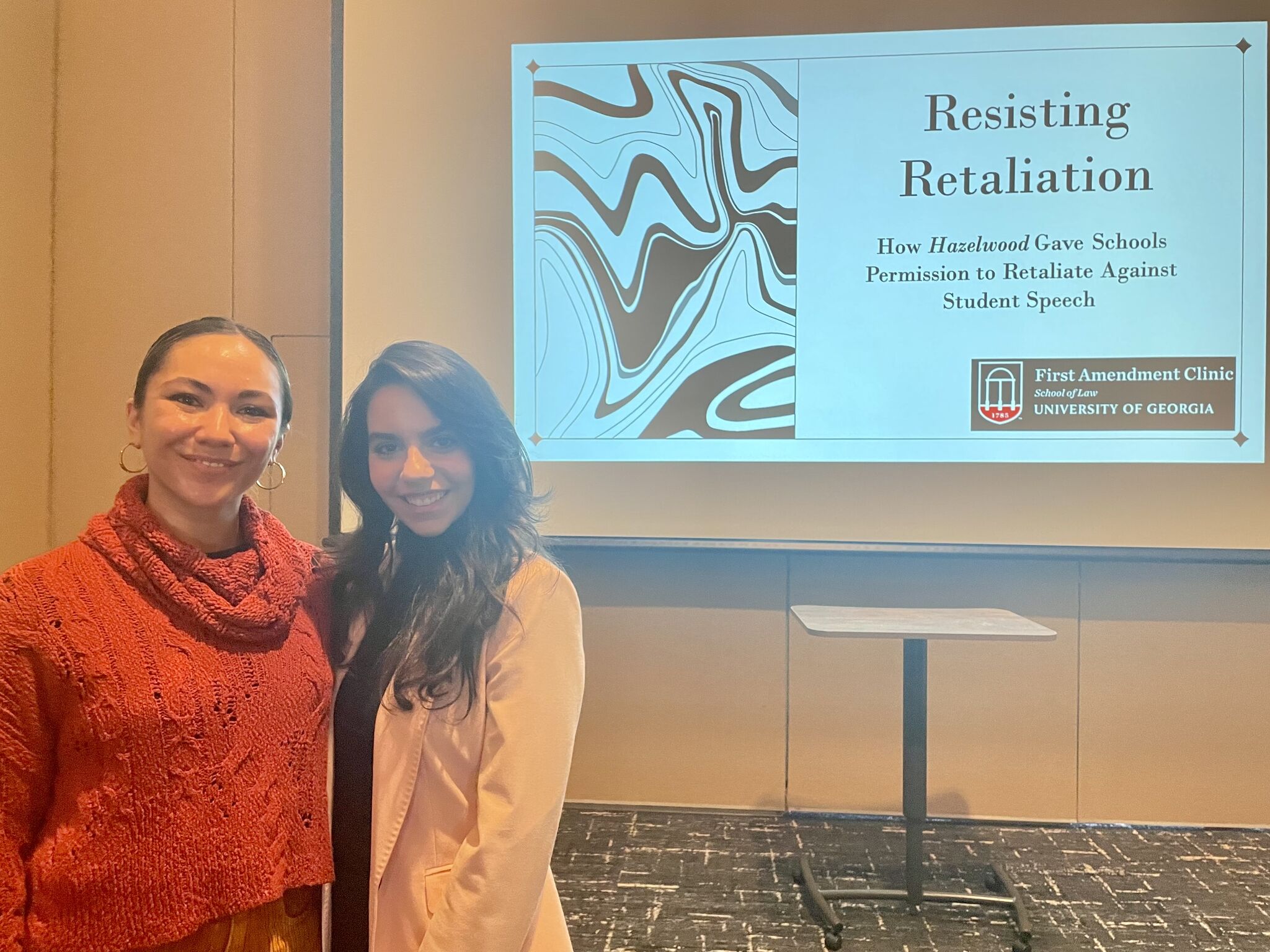
Student Speech Rights
Clinic student Mona Abboud and Clinic project attorney Samantha Hamilton presented on student speech and press rights at the Georgia Scholastic Press Association’s annual fall conference for high school journalists and their advisors.
Clinic fellow Ashley Fox helped prepare the presentation.
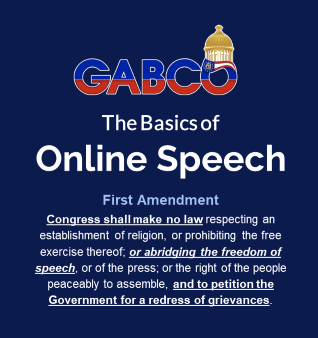
Social Media Blocking
Clinic director Clare Norins presented on the First Amendment implications of social media blocking at a CLE panel hosted by the Georgia Association of Black County Officials.
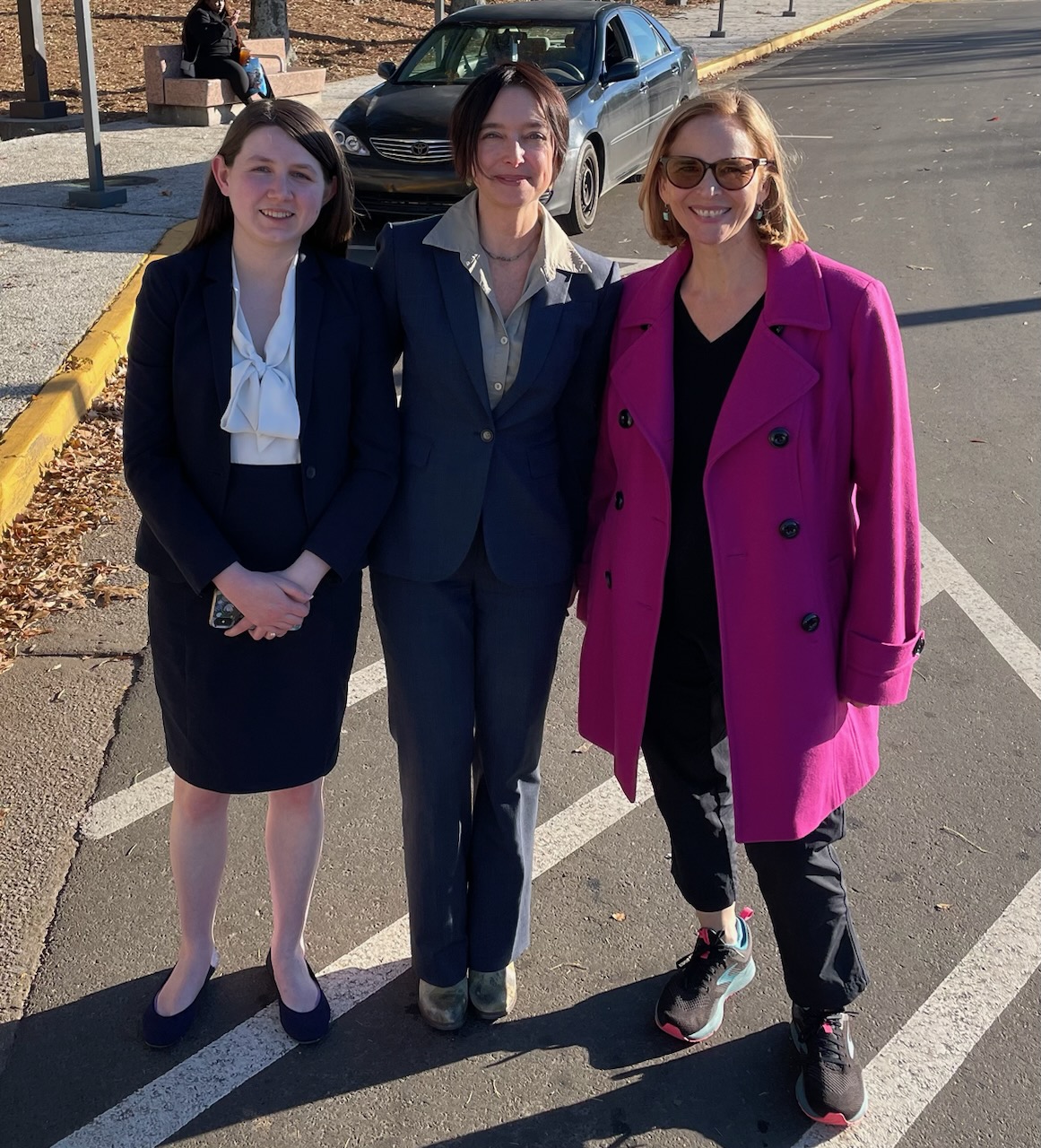
Responding to First Amendment Auditors
Clinic fellow Ashley Fox and Clinic director Clare Norins, in collaboration with the Georgia First Amendment Foundation’s Kathy Brister, presented to the Atlanta Police Department’s command staff on First Amendment auditors’ right to record.
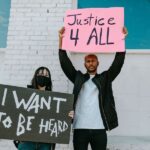
The Issue
Free Speech
The First Amendment protects the right of private individuals to engage in speech and expression without being censored or punished by the government because of their viewpoint. While the government may constitutionally regulate the time, place, and manner of private speech in public forums it must do so in a viewpoint-neutral manner and, depending on…
Explore Issue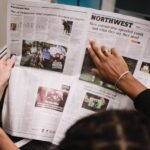
The Issue
Media Law
The First Amendment guarantees a free press, meaning journalists are able to express any opinions they want about the government, even criticisms. However, journalists are often hindered in their ability to gather and publish news through the threat of lawsuits, subpoenas, and criminal prosecution. Read more about our support for student and professional journalists here.
Explore Issue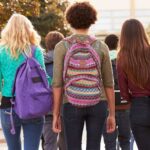
The Issue
Student First Amendment Rights
The First Amendment protects students and student journalists from censorship and retaliation in public schools and universities. As the Supreme Court has explained, students do not “shed their constitutional right to freedom of speech at the schoolhouse gate.” Read more about our work on behalf of students and student journalists here.
Explore Issue
The Issue
Social Media Blocking
The First Amendment protects speech on social media platforms that have been designated as public forums by government officials or agencies. Government officials cannot block individuals from accessing their social media pages simply because the government dislikes or disagrees with their speech. Read more about our work protecting citizen speech here.
Explore Issue